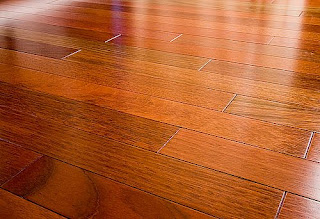
While hardwood floors are brilliant
performers, they aren’t indestructible. You can help maintain their strength
and lasting beauty by following these general guidelines, and helpful Do’s and
Don’ts to keep in mind when treating your Hardwood Floors
Do’s
·
Do vacuum and sweep your floor frequently, especially in
high-traffic areas.
·
Do keep pets’ nails trimmed and their paws free of dirt, gravel,
grease, oil, and stains.
·
Do use protective window coverings to block fade-causing UV rays
and excessive heat from direct sunlight, and rearrange rugs and furniture
periodically to help your floor age evenly.
·
Do remove shoes with spiked or damaged heels before walking on
floor.
·
Do use a humidifier during heating seasons to help reduce wood
shrinkage and maintain proper relative humidity (between 35% - 55%).
Don'ts
·
Do not wet-mop, damp-mop, or clean your floor with water or
other liquids.
·
Do not use hardwood floor-cleaning or buffing machines or steam
cleaners.
·
Do not use oil soaps, liquid or paste wax or other household
products containing oil (such as citrus, lemon or tung oil), silicon or ammonia
to clean floor.
·
Do not use harsh cleaning aids such as steel wool pads, any
scouring pads containing metal or scouring powders.
·
Do not use 2-in-1 cleaners with polish that may contain acrylics
or urethane polish to restore gloss.
A Clean
Routine
Vacuum or sweep with a soft-bristle broom
regularly, especially before using floor cleaners, to prevent gritty dirt and
particle buildup that can scratch the wood’s surface. Don’t use vacuums with a
beater bar or power rotary brush head. Wipe up spills and spots immediately
with Hardwood & Laminate Flooring Cleaner
applied directly to a clean white cloth. Use ice to harden tough substances
such as candle wax or chewing gum and then gently scrape with a plastic
scraper, such as a credit card. Be careful not to scratch the flooring surface.
Wipe area clean with a soft, slightly damp cloth.
Floor
Mats Protect Your Floors
High-qualityfloor mats at entrances and exits
are key to reducing tile wear. They collect and trap all the corrosive
substances that can be tracked in from outdoors, including dirt, sand, grit,
oil, asphalt, or even driveway sealer. Also use mats in areas of constant
pressure, such as in front of vanities, kitchen sinks and stoves.
Protective
Pads On Furniture -- A Good Idea
Attach felt or similar protective pads to all
furniture legs, particularly heavy pieces. When you’re moving furniture,
appliances or other heavy objects, use a dolly; never slide or roll anything
across the floor. If furniture has hard plastic or metal casters/wheels, use
protective mats underneath or replace them with soft rubber casters.

Great blog, very informative. Thank you for sharing. I will have to pass along your name to family and friends in the area.
ReplyDeleteCall NY moving for your next move.